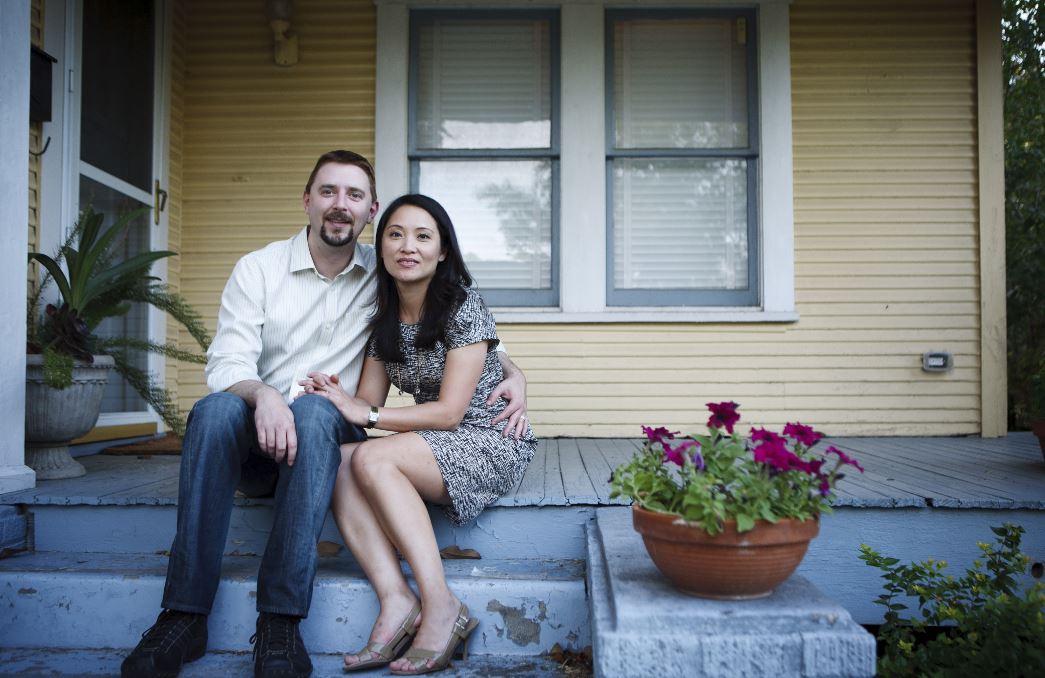Identity is a complex issue. It is subject to much-heated debate and contradictions. ‘Race’ (our biological backgrounds) and ‘ethnicity’ (our social and cultural backgrounds) are elements that we may explore when thinking about our identities. But other aspects including religion, nationality, class, gender and disability can also be important in how we think about and see ourselves. Therefore, many of us may have several identities that we use and these may vary at different times for different purposes.
For people in ‘mixed’ relationships, questions about identity and belonging can become even more complex. While some people may choose identities that reflect their own family backgrounds, others may create new identities that take into consideration their personal life experiences. Some people may construct identities that exclude race, ethnicity or religion as aspects of who they feel they are.
People in ‘mixed’ couple relationships and ‘mixed’ families may try to understand who they are in relation to others in their families and also in the wider society. Negotiations can be much more difficult for some mixed couples and families than for others.

Img Source: radicallychristian.com
Case study: Everton (Black Caribbean man) and Aisha (Bangladeshi woman) have been together for 13 years and have two primary school-age children. They do not view their ‘mixed’ relationship as a problem. However, their marriage has created problems for Aisha with her immediate and extended family, and more generally within her South Asian community. As a consequence, Aisha decided to reject her family, their culture and religion and has chosen not to teach her children about these matters. Instead, she has chosen to adopt her husband’s ethnic identity and his family’s cultural practices as the values to pass on to her children. [Goulbourne et al 2010.]
As this case study demonstrates, a sense of identity and belonging for people in ‘mixed’ couple relationships can be influenced by their experience of rejection and disapproval from their families and the wider society. You can read more about this in the focus article on disapproval and rejection.
‘Mixed’ couples’ own sense of identity and their previous experiences may also influence how they bring up their children. Couples bringing up ‘mixed’ children understand the difference in their families and try to give their children a sense of belonging and identity in a variety of ways.
- Some parents may feel that their children should be aware of their ‘mixed’ backgrounds, and embrace and share in the opportunities that these bring.
- Some parents may stress one aspect of their children’s background and encourage a sense of belonging through it.
- Others may not see their children’s identity and sense of belonging as linked to their particular backgrounds and may encourage their children to think beyond such categories.
Some parents may combine these different approaches to give their children a sense of belonging.

Img Source: pinterest.com
Watch this video to hear what some ‘mixed’ couples think about both their own identity and that of their children:
Ultimately, many things influence the ways in which ‘mixed’ children identify themselves. These include parental upbringing, contact with extended families, neighborhoods and schools, friendship alliances, language and their physical appearance. For some, ‘race’, ethnicity and religion are elements in the ways in which they see themselves. These elements may be played up or down depending on where they are and who they are with, despite what their parents might have taught them. Additionally, brothers and sisters brought up in the same mixed families may also show considerable diversity in how they understand and identify themselves in terms of race, ethnicity, religion and nationality.
The census provides information about ‘mixed’ ethnicity. However, it does not explain the complexity of mixedness, and why people choose to identify themselves as they do. Therefore, despite the labels or terms that professionals and policymakers may use for ‘mixed’ people, from the perspective of ‘mixed’ people themselves, there is no distinct, ‘correct’ or ‘right’ term to describe them. Ultimately they will identify themselves the way they choose depending on their experiences over time and in different situations. Essentially, for ‘mixed’ people, identity can be a more complex process than simply identifying with their parental ancestry.
If you’d like to work on your relationship either alone or with your partner, why not try some of the exercises in your Person Space?
We recommend:
Click here for references and further reading of mixed families.

